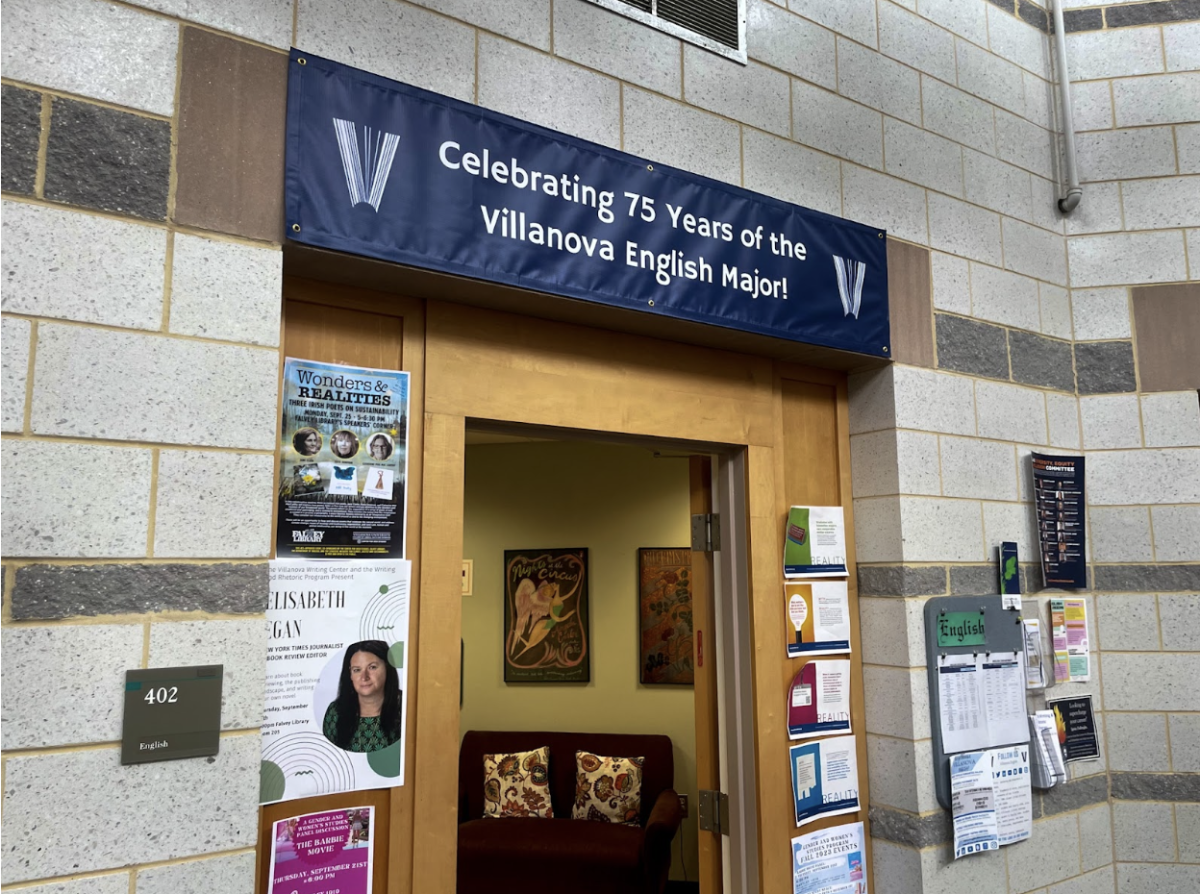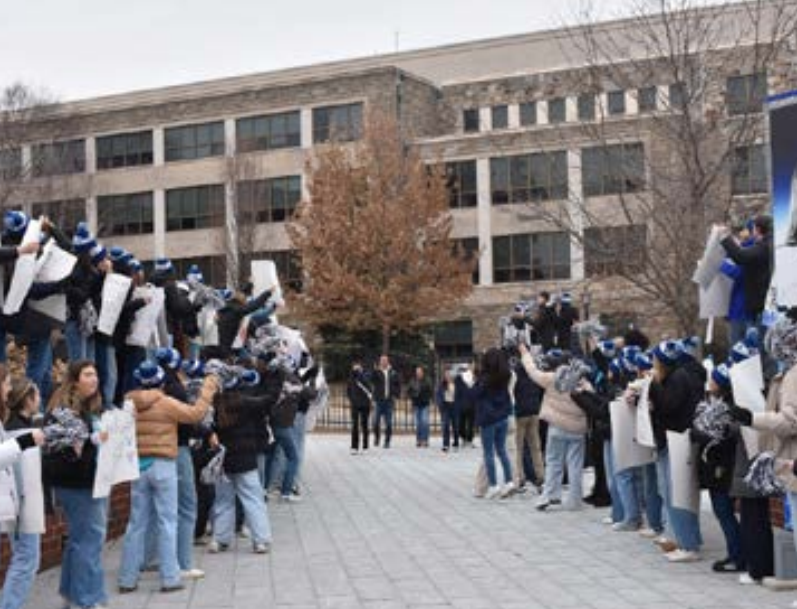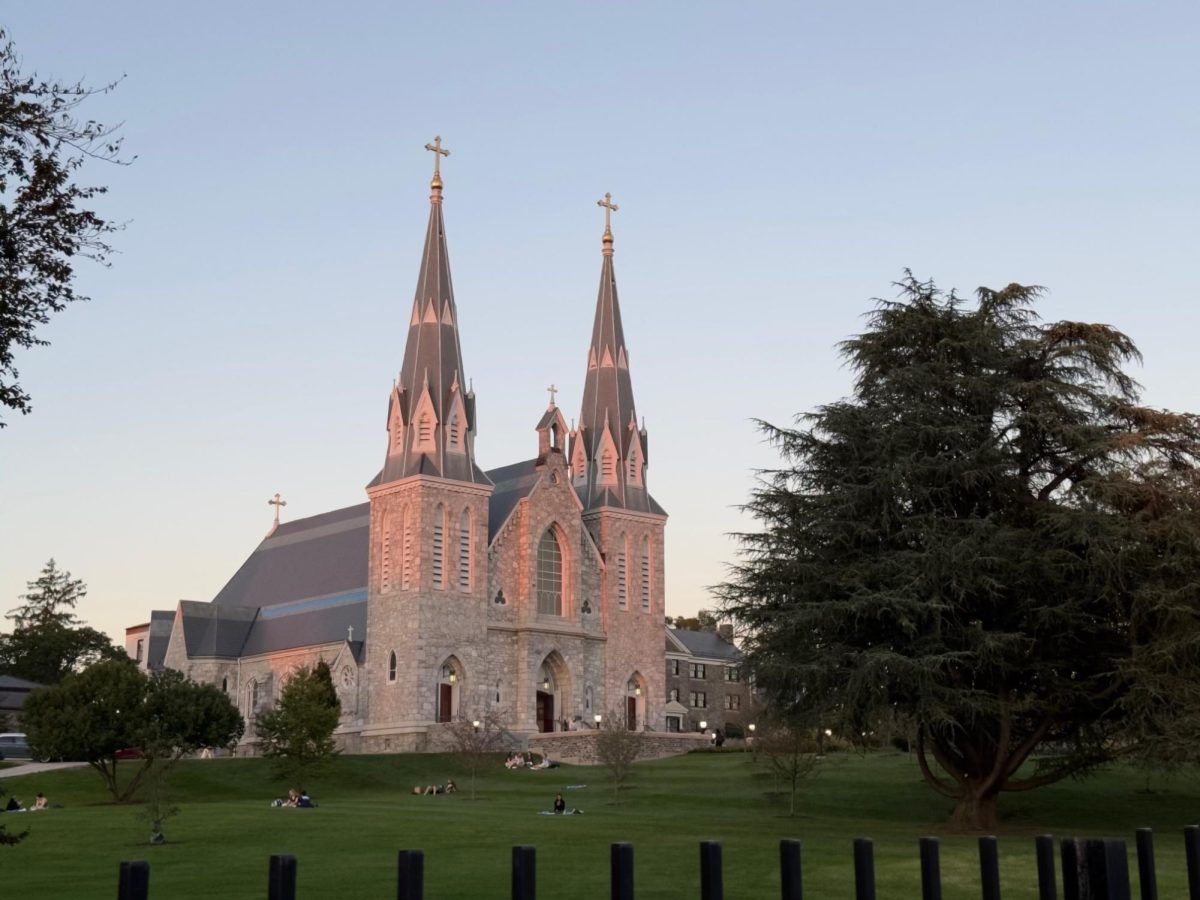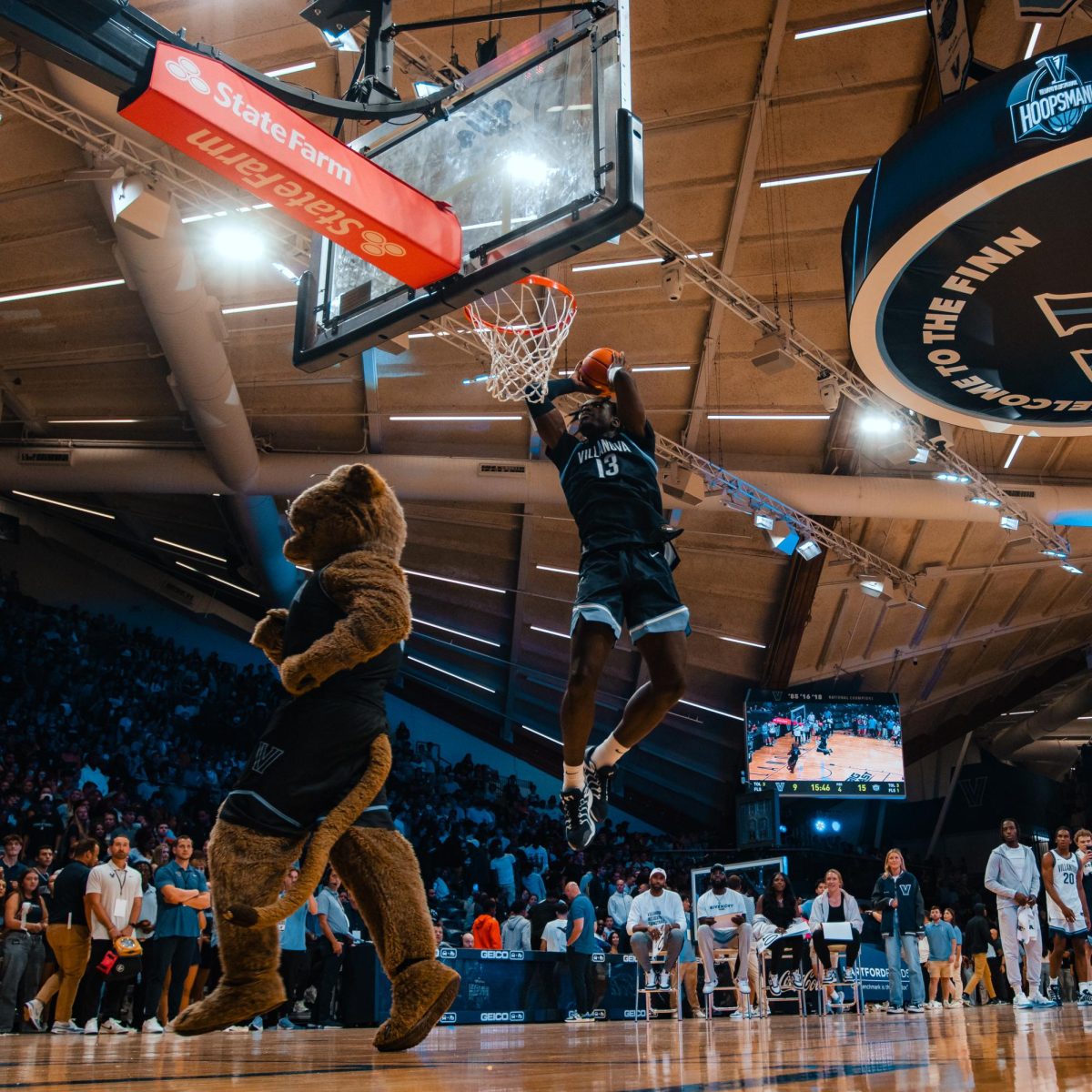This year marks the 75th year of the English major on Villanova’s campus, and both faculty and students in the department anticipate a school year filled with celebrations and well-curated events.
“We are having fun,” Dr. Heather Hicks, Chair of the English Department, said. “We are going to celebrate throughout the year and have lots of birthday cakes.”
An annual event that the department took extra care this year in curating is the Literary Festival that occurs each spring.
“We wanted to make it a special literary festival,” Hicks said.
The English Department faculty seem especially excited about the attendance of Tracy K Smith.
Smith is a Pulitzer Prize-winning author, as well as a poet, memoirist, editor, translator and opera librettist. At Harvard University, Smith is a professor of English and African American Studies. Her accomplishments and expertise are just some of the reasons why the English Department eagerly anticipates her attendance to this year’s Literary Festival.
“It is amazing that she is coming,” Dr. Mary Mullen, an Associate Professor of English at Villanova, said.
Mullen also expressed her excitement about the collage of the English major’s history that is currently in Falvey.
“That collage is based on research in the archives that Mike Malloy did, and so it’s different images and texts from 75 years in the English Department,” said Mullen. “It’s things like T.S. Elliot giving a talk in Bryn Mawr, which is so cool. There is a picture of Dr. Hicks from one of her earlier years working at Villanova. There is a picture of the English Department from 1991 and all the faculty are men. So, gender is something that is really apparent in the photos.”
Hicks began working at Villanova University in 1996 and has witnessed the changes in the way the English major is taught at this University.
“On the teaching side, when I first arrived here, there were still a fair number of faculty who just lectured,” Hicks recalled. “It was entirely lecture-based content. Now, we have faculty who have an amazing repertoire of different strategies for keeping students centered in conversation.”
Within the courses required for the English major, students learn to read, write and articulate their ideas and arguments clearly and intellectually. Hicks commented that the ways in which English majors can participate in the learning process in 2023 contrasts the lecture-based courses of the late 1990s.
Dr. Megan Quigley noted that, during her 15 years at Villanova University as an Associate Professor of English, she has noticed an increase in student focused activities that further allow students to be more central in their educational experience.
“I have noticed a difference,” Quigley said. “I think there are more student-focused activities. We did the BIPOC writing group, which is very popular, but we’ve also had various writing activities including a Valentine’s Day Taylor Swift broken hearts writing group.”
In addition to this shift in the English major teaching style, the required content for the major has changed drastically as well.
“In terms of the content of the classes, there were very few courses that weren’t strictly about the very traditional periods,” Hicks said. “The writers that were being looked at largely in 1996 were still sort of European white male writers of the so-called canon.”
Quigley expressed her enthusiasm with how the English major has become intertwined with several other disciplines over her 15 years at Villanova.
“We didn’t just want to have a diversity attribute,” Quigley emphasized. “We want that in the idea of literature. One of those historical classes has to be by a non-white writer, so we know that it is not just the white canon that our students are learning”
Gender and Women’s studies, Africana studies, Irish studies, courses on literature and film of India and so many other global and diverse topics of study have been introduced in tandem with the English major. There is no longer an isolated focus on the traditional canon of Chaucer and Shakespeare, but instead a shift to an interdisciplinary focus.
This is important because it increases the scope of education each English major receives. Students in this department will learn about a variety of voices, perspectives and stories that differ from their own.
When confronted with the stigma that surrounds the English major, and the hesitancy of certain students to declare this major based on an uncertain future, these professors emphasize that the skills students acquire in this major are versatile and valuable.
“I have no concerns about the skills set students learn in this major,” Hicks said. “The evidence of how our alums are faring reinforces my confidence that the students should choose what they really want to do.”
In fact, to further reassure those pursuing the English major, the English Department will host a colloquial event with a focus on the future of English Literary Studies, on Oct. 23 at 6p.m. Hicks noted that two very prominent scholars will be directing this discussion of the study of English.
Students who are English majors, or considering declaring an English major or minor, should sign up for the English Department email list, or attend one of the many events planned for this school year.





